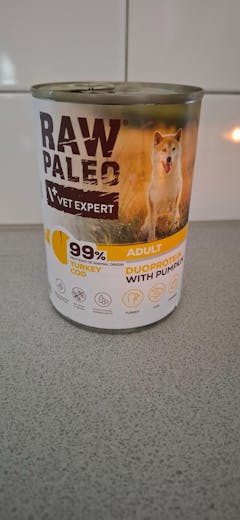Foder för Mage & Tarmsjukdom Hund: Skonsam Näring för Känsliga Magar
Mage- och tarmproblem är bland de vanligaste åkommorna hos hundar, och de kan sträcka sig från enstaka, milda besvär till kroniska, livslånga tillstånd. Oavsett om din hund lider av akut diarré, kroniska kräkningar, känslig mage eller inflammatorisk tarmsjukdom (IBD), är rätt diet avgörande för att lindra symptom och främja läkning. På Zoostar.se erbjuder vi ett specialutvalt sortiment av foder för mage och tarmsjukdom hund, noggrant framtagna för att stödja hundens matsmältningssystem och återställa balansen.
Förstå Mage- & Tarmsjukdomar hos Hundar
Matsmältningssystemet är komplext, och problem kan uppstå i magsäcken, tunntarmen, tjocktarmen eller bukspottkörteln. Vanliga symptom inkluderar kräkningar, diarré, förstoppning, aptitlöshet, viktminskning och buksmärta. Orsakerna kan variera från olämplig kost och parasiter till infektioner, allergier eller kroniska inflammationer.
**Exempel på vanliga tillstånd:**
- Akut gastroenterit (plötslig mag-tarmkatarr)
- Kronisk enteropati/IBD (Inflammatory Bowel Disease)
- Pankreatit (inflammation i bukspottkörteln)
- Födoämnesallergier eller -intoleranser
- Kolit (inflammation i tjocktarmen)
En korrekt diagnos från din veterinär är alltid det första steget för att identifiera den specifika orsaken till din hunds mag-tarmproblem och kunna välja det mest lämpliga foder för mage och tarmsjukdom hund.
Hur Specialfoder Stödjer Matsmältningen
Foder för mage- och tarmsjukdomar är formulerade med unika egenskaper för att:
- **Ökad Smältbarhet:** Innehåller lättsmälta ingredienser (som ris, hydrolyserat protein) för att minska belastningen på tarmen och maximera näringsupptaget.
- **Optimal Fetthalt:** Måttligt reducerad fetthalt med lättsmälta fetter (som MCT-oljor) för att undvika diarré och inflammation i bukspottkörteln. För pankreatit kan extremt låg fetthalt vara nödvändigt.
- **Balanserade Fibrer:** En blandning av lösliga och olösliga fibrer hjälper till att normalisera tarmrörelser, lugna tarmen och främja en hälsosam tarmflora.
- **Prebiotika och Probiotika:** Berikade med prebiotika (t.ex. FOS, MOS) som ger näring åt nyttiga tarmbakterier, och ibland probiotika för att återställa tarmflorans balans och stärka immunförsvaret.
- **Antioxidanter och Vitaminer:** Högre nivåer av antioxidanter (E, C) och B-vitaminer för att skydda celler från oxidativ stress och kompensera för eventuella näringsbrister.
- **Hypoallergena Alternativ:** För hundar med födoämnesallergier finns specialfoder med hydrolyserat protein eller begränsade proteinkällor (hypoallergent foder hund) för att minska immunreaktioner.
Dessa veterinärfoder är designade för att ge maximalt stöd till ett känsligt mag-tarmsystem.
Viktiga Kompletterande Åtgärder
Förutom rätt diet, är en omfattande strategi viktig vid hantering av mag- och tarmproblem:
- **Medicinsk Behandling:** Veterinären kan ordinera antibiotika, antiinflammatoriska medel, antiemetika (mot kräkningar), enzymtillskott (vid EPI) eller avmaskningsmedel, beroende på diagnos.
- **Vätske- & Elektrolytbalans:** Se till att hunden dricker tillräckligt för att undvika uttorkning, särskilt vid kräkningar/diarré. Intravenös vätska kan behövas i allvarliga fall.
- **Mindre, Frekventa Måltider:** Dela upp den dagliga ransonen i flera små måltider för att minska belastningen på matsmältningssystemet.
- **Stresshantering:** Stress kan förvärra magproblem. Skapa en lugn miljö för din hund. Vårt foder för stress och nervositet hund kan även vara relevant.
- **Noggrann Övervakning:** Håll koll på din hunds symptom, aptit, vikt och avföring för att rapportera till veterinären.
- **Regelbundna Veterinärbesök:** Täta uppföljningar med veterinären är avgörande för att justera behandlingen och bedöma framsteg.
- **Helhetssyn på Hälsa:** Mag-tarmproblem kan vara kopplade till andra hälsoproblem. En hudhälsa som är påverkad av allergier kan också ge magproblem. Problem med leversjukdom, njursjukdom, diabeteskontroll, urinvägsproblem, led- och rörelsehälsa, tandhälsa och hjärtsjukdom kan alla påverka eller påverkas av matsmältningssystemet. Även viktkontroll för hundar är relevant.
Med rätt foder för mage och tarmsjukdom hund från Zoostar.se och ett tätt samarbete med din veterinär, kan du ge din hund de bästa förutsättningarna för att återhämta sig och må bra.
Vanliga frågor om Foder för Mage & Tarmsjukdom Hund
Här besvarar vi några av de mest frekventa frågorna vi får angående foder för hundar med mage- och tarmsjukdomar.
Vad är mage- och tarmsjukdomar hos hundar, och vilka är de vanligaste?
Mage- och tarmsjukdomar (gastrointestinala sjukdomar) hos hundar omfattar en mängd tillstånd som påverkar matsmältningssystemet, från magsäcken och tunntarmen till tjocktarmen och ändtarmen. Dessa sjukdomar kan orsaka allt från milda och övergående symptom till allvarliga, kroniska besvär som påverkar hundens livskvalitet och näringsupptag. Matstrupen är också en del av matsmältningskanalen och kan ibland vara påverkad. Vanliga typer av mage- och tarmsjukdomar: - Akut gastroenterit: En plötslig inflammation i mage och tarm, ofta orsakad av kostförändringar, intag av olämpliga föremål/mat, virus eller bakterier. Leder till kräkningar och diarré. - Kronisk enteropati (IBD – Inflammatory Bowel Disease): En grupp kroniska inflammatoriska tillstånd i tarmen, där immunförsvaret felaktigt attackerar tarmväggen. Detta leder till ihållande kräkningar, diarré, viktminskning och aptitlöshet. Kan kräva ett foder för mage och tarmsjukdom hund som är hypoallergent. - Pankreatit: Inflammation i bukspottkörteln. Akut pankreatit är ofta svår och kräver intensivvård, medan kronisk pankreatit kan ge mildare, återkommande symptom. Påverkar matsmältningen då bukspottkörteln producerar matsmältningsenzymer. - Exokrin pankreasinsufficiens (EPI): Bukspottkörteln producerar inte tillräckligt med matsmältningsenzymer, vilket leder till dåligt näringsupptag, viktminskning och stora mängder illaluktande, fettig avföring. - Kolit: Inflammation i tjocktarmen, som ofta ger symptom som slemmig eller blodig diarré, krystningar och ökat antal avföringstillfällen. - Födoämnesintolerans/Födoämnesallergi: En negativ reaktion på specifika ingredienser i fodret. Symptom kan vara kräkningar, diarré, klåda och hudproblem. Födoämnesallergier involverar immunförsvaret. - Gastrit: Inflammation i magsäcken, ofta med kräkningar som huvudsymtom. - Förstoppning: Svårighet att passera avföring, ofta orsakad av uttorkning, dietförändringar, brist på fibrer eller underliggande medicinska tillstånd. - Megacolon: Förstorad och funktionsnedsatt tjocktarm, vanligare hos äldre katter men kan förekomma hos hundar. - Förgiftning: Intag av giftiga ämnen kan orsaka akut och allvarlig gastroenterit. Orsaker till mage- och tarmsjukdomar hos hundar: Orsakerna är många och kan vara komplexa: - Kost: Plötsliga foderbyten, intag av skämd mat, människomat, eller en diet som inte passar hunden (t.ex. för hög fetthalt). - Infektioner: Bakteriella (t.ex. Salmonella, Campylobacter), virala (t.ex. Parvo, Corona), parasitära (t.ex. giardia, spolmask, bandmask) eller svampinfektioner. - Föremål: Intag av främmande föremål som fastnar i tarmen eller irriterar magsäcken. - Läkemedel: Biverkningar från vissa läkemedel (t.ex. NSAID-preparat, antibiotika). - Stress: Kan påverka matsmältningssystemet negativt, som du kan läsa mer om under foder för stress och nervositet hund. - Underliggande sjukdomar: Leversjukdom, njursjukdom, diabetes, Addisons sjukdom, tumörer i mag-tarmkanalen. Symptom på mage- och tarmsjukdomar hos hundar: Symptomen varierar beroende på vilken del av matsmältningssystemet som är påverkad, men vanliga tecken inkluderar: - Kräkningar: Akuta, kroniska, eller återkommande. - Diarré: Lös avföring, ökat antal avföringstillfällen, slem eller blod i avföringen (kolit). - Förstoppning: Ansträngd avföring, gles avföring. - Aptitförändringar: Minskad aptit (anorexi) eller ökad aptit. - Viktminskning: Trots normal aptit kan näringsupptaget vara nedsatt. - Buksmärta: Hunden kan vara ovillig att bli rörd över buken, ha en krummad rygg. - Gasbildning och bullriga magar. - Nedsatt allmäntillstånd, slöhet. Diagnos av mage- och tarmsjukdomar hos hundar: Diagnosen ställs av en veterinär med hjälp av: - Klinisk undersökning: Bedömning av symptom och allmäntillstånd. - Blodprover: För att kontrollera inflammation, infektion, bukspottkörtelfunktion och näringsstatus. - Avföringsprov: För att identifiera parasiter, bakterier eller virus. - Ultraljud/Röntgen: För att visualisera organen, utesluta främmande föremål eller tumörer. - Endoskopi/Kolonoskopi: För att direkt visualisera slemhinnan och ta biopsier för mikroskopisk undersökning. - Specifika tester: T.ex. gallsyretest för leversjukdom, TLI-test för EPI. Ett foder för mage och tarmsjukdom hund är en grundpelare i behandlingen för många av dessa tillstånd och används för att minska inflammation, underlätta matsmältningen och optimera näringsupptaget. Det är en del av ett brett utbud av veterinärfoder som är anpassade för olika hälsoutmaningar.
Hur skiljer sig foder för mage- och tarmsjukdomar från vanligt foder, och varför är det viktigt?
Ett anpassat foder för mage och tarmsjukdom hund skiljer sig avsevärt från ett standardfoder i sin sammansättning och syftar till att minska belastningen på ett känsligt eller inflammerat mag-tarmsystem, optimera näringsupptaget och främja läkning. Anledningen till att dessa specialfoder är så viktiga är att ett \"vanligt\" foder ofta kan förvärra symptomen, irritera tarmen ytterligare och leda till fortsatt näringsbrist. Här är de viktigaste skillnaderna och varför de är viktiga: 1. Hög Smältbarhet: - Skillnad: Ingredienserna i gastrointestinala foder är noggrant utvalda för att vara mycket lättsmälta. Detta innebär att de har en hög biologisk tillgänglighet, vilket gör att hundens matsmältningssystem kan bryta ned och absorbera näringsämnen med minimal ansträngning. - Varför viktigt: Ett lättsmält foder minskar restprodukter som kan fermenteras i tarmen, vilket minskar gasbildning och diarré. Det säkerställer också att hunden får i sig tillräckligt med näring, även om tarmen är skadad eller inflammerad. Vanliga källor inkluderar ris, hydrolyserat protein och specifika fetter. 2. Kontrollerad Fetthalt: - Skillnad: Många gastrointestinala foder har en måttligt reducerad fetthalt, men med ett högt innehåll av lättsmälta fetter (t.ex. medium-chain triglycerides, MCT-oljor). Vissa specifika foder, särskilt för pankreatit, har en mycket låg fetthalt. - Varför viktigt: Fett är svårare att smälta än kolhydrater och proteiner, och ett högt fettintag kan förvärra diarré, illamående och inflammation i bukspottkörteln (pankreatit). MCT-oljor är lättare att absorbera direkt i tunntarmen utan att behöva gallsalter. 3. Fiberbalans: - Skillnad: Beroende på sjukdom kan fibernivån och typen av fiber variera. Vissa foder innehåller en balanserad blandning av lösliga och olösliga fibrer. Lösliga fibrer (t.ex. psyllium) kan bilda en gel som lugnar tarmen och bidrar till en fastare avföring. Olösliga fibrer kan bidra till att reglera tarmrörelser. - Varför viktigt: Fibrer kan normalisera tarmfunktionen, både vid diarré och förstoppning. Prebiotiska fibrer (t.ex. FOS och MOS) stimulerar tillväxten av nyttiga tarmbakterier, vilket är avgörande för en hälsosam tarmflora. 4. Prebiotika och Probiotika: - Skillnad: Många gastrointestinala foder är berikade med prebiotika (t.ex. FOS, MOS) och/eller probiotika (nyttiga bakterier). - Varför viktigt: En störd tarmflora är vanlig vid mag-tarmsjukdomar. Prebiotika ger näring åt de goda bakterierna, medan probiotika tillför nya nyttiga bakterier som kan hjälpa till att återställa balansen, stärka tarmbarriären och förbättra immunförsvaret i tarmen. 5. Antioxidanter och Vitaminer: - Skillnad: Högre nivåer av antioxidanter (t.ex. vitamin E, C) och B-vitaminer. - Varför viktigt: En inflammerad tarm kan ha svårt att absorbera näringsämnen, och oxidativ stress kan vara förhöjd. Tillsatta vitaminer kompenserar för potentiella brister och stödjer cellskydd och immunförsvar. 6. Begränsat antal ingredienser/Hypoallergena alternativ: - Skillnad: För hundar med födoämnesallergier eller intoleranser är det avgörande med ett foder med hydrolyserat protein eller ett begränsat antal nya proteinkällor. - Varför viktigt: Dessa foder minskar risken för immunreaktioner som kan leda till kräkningar, diarré och hudproblem (se även hypoallergent foder hund och foder för hudhälsa hund). Vissa källor till foder för mage och tarmsjukdom hund kan vara speciellt framtagna för att vara hypoallergena. Ett foder för mage och tarmsjukdom hund är ett veterinärfoder och bör alltid användas under överinseende av en veterinär, då det är en medicinsk diet. Denna typ av diet ger din hund de bästa förutsättningarna för att återhämta sig och må bättre.
Vilka andra åtgärder är viktiga vid hantering av mage- och tarmsjukdomar hos hundar?
Att hantera mage- och tarmsjukdomar hos hundar är ofta en komplex process som kräver mer än bara ett anpassat foder för mage och tarmsjukdom hund. En nära dialog och samarbete med din veterinär är avgörande för att identifiera den specifika orsaken till problemen och utforma en helhetsplan för behandling och omvårdnad. Här är andra viktiga åtgärder: 1. Medicinsk Behandling: - Antibiotika: Om bakteriell överväxt eller infektion misstänks (t.ex. vid SIBO – Small Intestinal Bacterial Overgrowth). - Antiinflammatoriska medel: Vid inflammatoriska tillstånd som IBD (Inflammatory Bowel Disease). Kortikosteroider (kortison) är vanliga, men även andra immunmodulerande läkemedel kan användas. - Antiemetika: Läkemedel för att stoppa kräkningar, vilket hjälper hunden att behålla foder och vätska. - Motilitetsreglerande medel: För att förbättra tarmrörelserna vid förstoppning eller hyperaktivitet. - Smärtlindring: Vid buksmärta. - Enzymtillskott: Vid Exokrin Pankreasinsufficiens (EPI) där bukspottkörteln inte producerar tillräckligt med matsmältningsenzymer. Dessa tillsätts direkt i fodret. - Avmaskning: Regelbunden avmaskning eller riktad behandling mot specifika parasiter (t.ex. giardia). 2. Vätske- och Elektrolytbalans: - Hydrering: Hundar med kräkningar och diarré riskerar uttorkning. Se till att hunden alltid har tillgång till färskt vatten. I svåra fall kan intravenös vätsketerapi hos veterinären vara nödvändig för att korrigera vätske- och elektrolytbalansen. 3. Mindre, Frekventa Måltider: - Belastningsminskning: Att dela upp den dagliga fodergivan i flera mindre måltider (3-6 gånger per dag) minskar belastningen på matsmältningssystemet och kan förbättra näringsupptaget. 4. Undvik Stress: - Stress kan påverka mag-tarmkanalen negativt. Se till att hunden har en lugn och trygg miljö. Överväg vårt foder för stress och nervositet hund om din hund är särskilt stresskänslig. 5. Noggrann Övervakning: - Håll koll på symptom: Var uppmärksam på förändringar i avföringens konsistens, färg, frekvens, kräkningar, aptit, vikt och allmäntillstånd. Anteckna gärna för att underlätta för veterinären. 6. Regelbundna Veterinärbesök: - Uppföljning: Täta besök hos veterinären är nödvändiga för att justera behandlingen, utföra relevanta tester (blodprover, avföringsprover) och bedöma hundens framsteg. - Andra hälsoproblem: Veterinären kommer också att övervaka för andra relaterade hälsoproblem. Mag- och tarmsjukdomar kan ibland vara kopplade till eller leda till andra tillstånd som leversjukdom, njursjukdom, diabetes, hudhälsa (allergier kan ge både mag- och hudproblem), tandhälsa (dåliga tänder kan påverka ätförmågan och matsmältningen), urinvägsproblem, led- och rörelsehälsa (vissa mediciner kan påverka magen) och hjärtsjukdom. Även viktkontroll för hundar är relevant. En holistisk syn på hundens hälsa är alltid bäst. 7. Undvik olämpliga godbitar och matrester: - Strikt diet: Håll dig till det rekommenderade fodret och undvik att ge hunden människomat eller godbitar som kan irritera mag-tarmsystemet. Att hantera en hund med mage- och tarmsjukdom kräver tålamod och konsekvens. Genom att följa veterinärens råd och använda ett anpassat foder för mage och tarmsjukdom hund från Zoostar.se kan du hjälpa din hund att återfå sin hälsa och livsglädje.
FAQ – Foder för Mage & Tarmsjukdom Hund
När ska man välja specialfoder för mage och tarm, och vilka symtom tyder på att hunden behöver det?
Specialfoder för mage & tarm används när hunden visar tecken på gastrointestinal obalans — exempelvis kronisk diarré, gaser, lös avföring, uppblåsthet, återkommande kräkningar eller känslig matsmältning. Många hundar har periodvis orolig mage som stabiliseras med rätt diet, men när problemen återkommer eller håller i sig längre än 2–3 veckor behövs ofta medicinskt anpassat foder.
Dessa foder är formulerade för att vara lättsmälta, milda mot mag/tarmslemhinnan, och innehåller ofta prebiotika och lösliga fibrer för att återställa tarmfloran. För hundar med IBS-liknande problem (Inflammatory Bowel Disease) är specialfoder ofta första behandlingssteg innan läkemedel övervägs.
Varför fungerar lättsmälta proteiner och prebiotika så bra vid magproblem?
Mage-tarmfoder innehåller lättsmälta proteinkällor som kyckling, fisk eller hydrolyserat protein, vilket minskar belastning på tarmen och ger snabbare upptag utan irritation. Prebiotika (t.ex. FOS, MOS, inulin) fungerar som näring för goda bakterier i tarmen och bidrar till en stabil mikroflora.
En välbalanserad tarmflora:
✔ förbättrar avföringskvalitet
✔ stärker immunförsvaret (70 % av immunet sitter i tarmen)
✔ minskar gaser och fermentering
✔ kortar återhämtning vid diarré
Just kombinationen av lättsmält protein + prebiotika är central för att bryta en ond cirkel av irritation → lös avföring → näringsbrist.
Hur lång tid tar det innan man ser effekt av mag- och tarmfoder?
Många hundar visar förbättring redan inom 3–7 dagar, särskilt om diarré eller gaser varit dominerande. Men för kroniska tillstånd, IBD-liknande symtom eller långvariga magproblem kan det ta 4–8 veckor innan tarmen återställt funktion och enzymbalans.
Fulltarmsreparation kräver tid.
All dietbehandling bör därför utvärderas över minst 6 veckor innan man byter foder.
Om tillståndet försämras eller blodig diarré uppstår → veterinär omgående.
Kan magfoder kombineras med probiotika och skonkost?
Ja, och kombinationen kan vara mycket effektiv. Probiotika kan ges som kur eller långsiktigt stöd, särskilt under stressperioder, antibiotikabehandling eller vid foderbyte. Skonkost som kokt ris + fisk/kyckling kan användas kortsiktigt 2–5 dagar för att vila tarmen — men saknar full näringsprofil och ska inte ersätta medicinskt foder permanent.
Foderet är grunden – probiotika är förstärkaren.
Permanent skonkost är däremot inte balanserad nog för långtidsutfodring.
Är mag/tarm-foder livslångt eller tillfälligt?
Det beror på diagnos. Vid tillfällig magirritation kan specialfoder ges i några veckor tills tarmen stabiliserats, för att sedan gradvis återgå till vanligt foder. Vid kroniska mag-/tarmsjukdomar (IBD, pankreatit, kronisk diarré) kan specialfoder däremot vara livslång kostbehandling.
Många hundar lever utmärkt i åratal med maganpassad diet så länge man följer den konsekvent och undviker plötsliga foderbyten. Regelbunden uppföljning och blodprov rekommenderas vid långtidsterapi.
Husdjursprodukter Online
Utforska fler populära hundkategorier
Här hittar du många av våra mest efterfrågade kategorier – från hundfoder och godis till tillbehör, vård och aktivering.
Ledande Fodertillverkare
Populära hundfodermärken
Här hittar du våra mest populära hundfoder – från spannmålsfritt till veterinärfoder. Klicka på ett varumärke för att se hela sortimentet.






